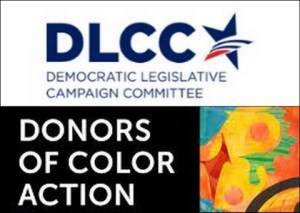
By AFRO Staff
2020 was a bumper year for Black politics. Not only did it garner the highest number of successful candidates of color in state legislative races in the nation’s history, but also those candidates won at a higher rate than White candidates, according to a new report by Donors of Color Action Network in partnership with the Democratic Legislative Campaign Committee.
“These findings undermine longstanding political narratives about electability and white candidates being more viable than candidates of color,” the report concluded. “For decades, that old narrative has caused an under-investment in candidates of color and a default assumption that white candidates are more likely to prevail.”
According to the report, out of the 1,397 candidates of color who ran on Democratic tickets, 1,050 won their contests, a win rate of 75.16%. More specifically, 804 Black Democratic candidates competed in 2020 and 612 won their elections at a win rate of 76.1 percent. Comparatively, the overall Democratic win rate was 54.39% and the White Democratic win rate was 46.1%.
Additionally, the analysis found an increase in the number of Democratic candidates of color who ran for legislative office, increasing from 1,172 in 2018 to 1,397 in 2020.
The study showed that far fewer candidates of color ran as Republicans (301), and were far less successful.
Among the standout candidates reflecting this increase in diversity was Shevrin Jones, who became the first openly gay Black lawmaker to serve in the Florida Senate when he was elected in 2020; and T’wina Nobles, who flipped her district red to blue in 2020 and in doing so became the first Black legislator elected to the Senate in Washington since 2010 and the only current Black senator.
Despite these strides, state legislatures continue to lack truly equal representation, remaining predominantly White and male.
That could be because of the systemic barriers that stymie candidates of color, the report suggested. For example, “Most state legislatures in the country do not offer full-time or competitive salaries, creating a gap in who can afford to serve and run,” the authors wrote.
Tackling those inequities is vitally important to addressing the broader disparities experienced by communities of color in areas such as education, justice, health and more, said Ashinidi Maxton, executive director of the Donors of Color Action Network.
“If you can change the makeup of the bodies…to be reflective of the population of the state,” Maxton told NewsOne, “you can dramatically transform the country in all of the ways that make it better…that makes it live up to its ideals.”
Help us Continue to tell OUR Story and join the AFRO family as a member – subscribers are now members! Join here!
The post Black candidates of color defied expectations in 2020 appeared first on AFRO American Newspapers .











